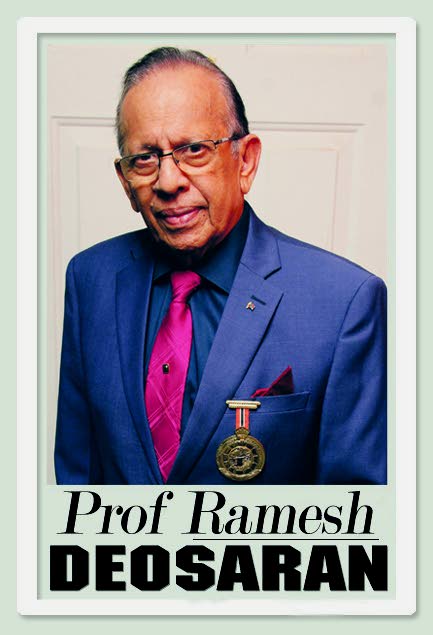Tinkering with the Police Service Commission

Some are wondering if all these published previews about the appointment of a Commissioner of Police are embarrassing to the current commissioner, whose contract ends on August 18, or unfair to the candidates selected by the Police Service Commission (PSC).
Or is it a push for required transparency and accountability? After all, I myself gave my views to the Guardian, Newsday and CNC3 last week.
This question was then posed to me by a retired senior police officer. However, I agree with my former PSC colleague, attorney Martin George, that people like us should express our views, especially on matters related to the PSC and its assessment process.
Legal Notice 183, recently laid in Parliament, states the PSC shall conduct a recruitment process inviting applications for the position, then, after scrutiny and assessment, send these names to Parliament through the President. People from the police ranks or on contract, currently or previously, are eligible to apply.
Several reporters duly asked whether the Attorney General and the government were reducing PSC transparency and expertise by removing the international firm from the assessment process.
AG Al-Rawi had explained that the legal notice intended “to simplify the selection process.” Referring to the ruling by Justice Rajkumar, he added: “It is clear law that the PSC has the exclusive jurisdiction and all that we really want is for the notice to effectively allow us to do in the simplest methodology possible and under the parameters of the Constitution.”
Removal of the very expensive international firm, with its protracted delays, is one step in the right direction.
However, removing the foreign firm should not result, for example, in superficial surveys restricted by cost. Large samples of the entire police service should now be examined to find out morale and areas of satisfaction or dissatisfaction, especially in context of the Constitution (Section 123A(1): “The Commissioner shall have the complete power to manage the Police Service and is required to ensure that the human, financial and material resources available are used in an effective and efficient manner.”
As Barbados PM Mia Mottley said last week, faced with new challenges, law enforcement needs to be changed from its robot-like approaches. She announced significant changes to the Barbados Police Force, with reretraining as priority.
A CNC3 reporter wanted to know, given the public importance of the CoP's office, whether the PSC, for example, would be publishing the criteria and the results of the assessment process to avoid confusion.
Bypassing such details, Opposition Leader Ms Kamla Persad-Bissessar insisted last Tuesday on having the legal notice debated in Parliament. She claimed “mischief” was afoot and explained: "Mischief is the potential for a ruling party/sitting government to select a CoP, and then use that CoP and the police force as a private army. To harass persons or opponents.”
She added: “We’ve heard half of the Cabinet doesn’t want this one fella – who the country wants – and the other wants someone else.”
It looks like throwing a chicken among the foxes.
Look, the current law is that once the names submitted by the PSC come to Parliament, the Parliament can select and then pass back its preference to the PSC for appointment. In effect, the government has a veto.
In 2016, both PNM and UNC sat and shaped the 2006 constitutional changes which we now have. A major reason then was to remove the PM veto.
This now reminds me of Columbus intending to sail east but ending up west.
Overall, since 2006 there has been frequent tinkering and chinksing with the PSC, powers of the CoP and the process of appointment – matters often ending in court. In 2006, Ms Persad-Bissessar sat next to then Opposition Leader Basdeo Panday when PM Patrick Manning and his Martin Joseph-led team presented the 2006 drafts for joint discussion.
Possessed of a PSC review report in 2014, Ms Persad-Bissessar is now in a position to produce a set of proposals for an overall bipartisan review of this 15-year old legislation.
As the AG himself recently admitted, the current appointment process is “too convoluted and complicated.”
But there is more to be done. I attended conferences of the international association of oversight bodies. We have the most complicated, constitutionally-driven oversight body in the world.
And with what results?

Comments
"Tinkering with the Police Service Commission"